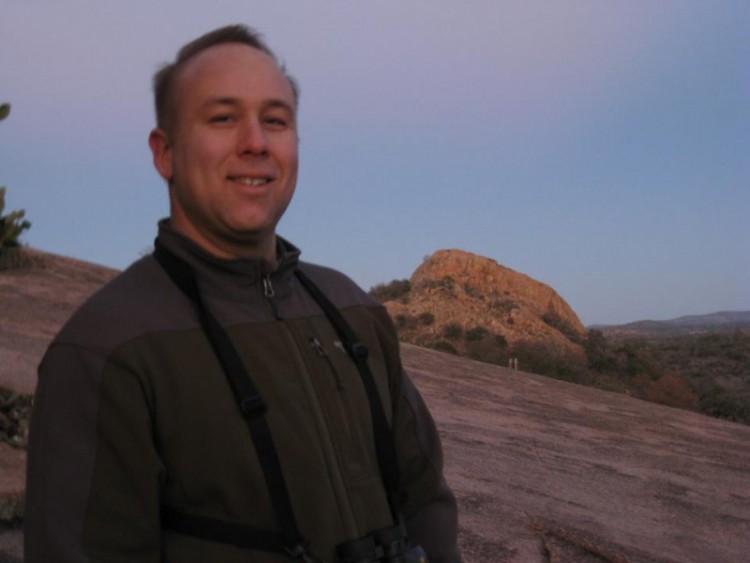Earlier this year, Calvin biology professor Darren S. Proppe drew worldwide attention when an article he co-authored, “Anthropogenic Noise Decreases Urban Songbird Diversity and May Contribute to Homogenization,” was published in the prestigious journal Global Change Biology.
The article demonstrates that urban areas with high noise levels in urban areas had fewer species of birds. It suggests that higher noise levels negatively affected female birds’ ability to hear male birds’ songs, thus negatively affecting their ability to mate.
After the article's publication, Proppe’s findings were reported by various media outlets, including the BBC online, UPI.com and National Geographic's online News Watch as well as Radio Canada and Chile’s El Murcurio newspaper.
This summer, Proppe, with the assistance of Calvin junior Emily Finch and seniors Jenna Kennedy and Dean Pettinga, has continued his research on the effect of urban noise on bird behavior.
Proppe and his student assistants have been working on two projects, one focusing on the timing of bird singing, the other on bird foraging behavior.
The first project, based at Pierce Cedar Creek in Hastings, involved Proppe and Finch playing traffic noise at dawn--the peak time when birds sing--in otherwise quiet locations and observing how this noise affects bird singing. Proppe and Finch played noise for one hour, with three one-minute gaps of silence within that hour.
Proppe and Finch have collected their data and continue to analyze it. They hope to discover if birds sing more during the gaps and will use their findings to investigate whether controlling traffic levels can affect the behavior of different bird species.
Proppe, Kennedy and Pettinga researched bird foraging at birdfeeders in back yards throughout Grand Rapids. In this project the trio observed songbirds' responses to two different kinds of aural stimuli. They first played traffic noise and then played the sound of the predatory Cooper's Hawk. They videoed and monitored the songbirds' behavior response to the different stimuli.
Preliminary results from this research suggest that songbirds are less likely to respond to predator calls when they are embedded in traffic noise. Proppe postulates that traffic noise may have life-threatening implications for songbirds, and that mitigation of noise may be important to protect them.
Proppe hopes to publish his findings in scholarly journals in the field of conservation behavior in the next year.
Proppe's research has benefitted from Pierce Cedar Creek Institute's Undergraduate Research Grants for the Environment (URGE), which sponsored Finch's efforts; and the Calvin College Science Division, which sponsored Kennedy and Pettinga.
Proppe noted the professional value of the students' summer research, calling it "the kind of thing that helps to prepare them for a career in biology research."
Proppe also expressed satisfaction with the students' efforts.
"I have been impressed by their ingenuity, their attention to detail and their perseverance," he said.
Pettinga said that his research with Proppe and Kennedy caused him to view Grand Rapids from a new perspective.
"Researching within natural geographical boundaries has helped me see the Grand Rapids area and community in a new light of environmental connectivity," he said.
Finch reflected on the value of her summer project, commenting on what she's learned about the scientific research process, the challenges of field work and the importance of collaborative learning.
Finch concluded her thoughts by stating that her new challenge will be to transition from her summer research back into coursework.
"Now it is just a matter of getting my mind quiet again since I can't seem to stop hearing bird songs!" she said.
The Rapidian, a program of the 501(c)3 nonprofit Community Media Center, relies on the community’s support to help cover the cost of training reporters and publishing content.
We need your help.
If each of our readers and content creators who values this community platform help support its creation and maintenance, The Rapidian can continue to educate and facilitate a conversation around issues for years to come.
Please support The Rapidian and make a contribution today.
